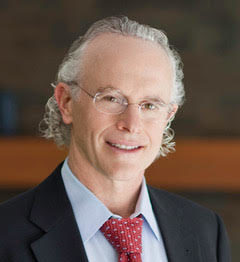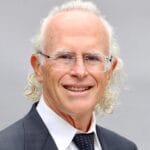
Today’s nursing homes are yesterday’s hospitals.
Whether short-term for skilled care, or long term for a multitude of complex medical problems, the decisions made by physicians have a distinct impact on the care of residents. Through regulation from the Centers for Medicare & Medicaid Services, and because it’s the right thing to do, the facility medical director must oversee the delivery of clinical care.
This is not limited to just signing the paperwork. It requires close coordination with the nursing home administrator and director of nursing. For a large nursing home chain, it should fall upon the Chief Medical Officer to support medical directors in this role. Unfortunately, it is rare for CMOs to be given the authority and accountability to do so. It thus becomes easy for a CEO to tell a CMO to “improve the clinical care.”
This sets up a scenario where the CEO has plausible deniability. The CMO makes recommendations, but nothing substantial happens, as there are no consequences. This is the conundrum that the nursing home industry must come to grips with.
Call me old fashioned, but I’ve always felt responsible for the oath I promised to uphold when I graduated from medical school. Being a geriatrician, the promise to do no harm has always been a guiding light and driving principle during my career. It’s one thing to carry out the Hippocratic oath as a physician caring for an individual patient. It’s another thing holding to it as an executive and leader with some accountability for the health and wellbeing of thousands of frail older adults.
When I became the CEO overseeing a large nursing home chain, my years of experience as a geriatrician proved invaluable in helping me understand the direction that the industry must take if it is to succeed. This will be particularly important with the advent of the Patient-Driven Payment Model.
As a CEO, the ramifications of my decisions were often not obvious. As I developed a better understanding of the inner workings of the nursing home industry, my confidence in anticipating potential outcomes began to grow. This was not dissimilar to my lifetime of experience as a geriatrician. As CEO I had a unique opportunity to connect the dots between operations and its impact on the care of the residents. Geriatricians are specially trained to evaluate highly complex individuals and situations. Those lacking this type of training and experience are at a distinct disadvantage, which is why I am a fierce advocate for having geriatricians hold accountable positions of authority in organizations that are responsible for the health and wellbeing of frail older adults and other seriously and chronically ill patients.
The CMO must be given the necessary authority and accountability to effect change. A geriatrician CEO, having taken the Hippocratic oath, and having a full understanding of the concept of doing no harm, has no choice but to give the CMO the necessary authority. Such a decision will inevitably result in a significant shift in the organizational structure, placing a physician in a position to impact day to day operations. Unfortunately, this concept is still anathema in today’s nursing home industry. Those in operational leadership roles find giving more authority to a physician difficult to cope with, especially when they believe that financial survival takes priority over clinical opportunities. Some will question whether a physician can understand the impact of their decisions on operations and finance. The reverse question is actually more important. How can those on the operations and finance side of the nursing home industry, lacking the necessary clinical background, truly understand what constitutes the proper approach to delivering quality clinical care?
Having been at the helm of a large nursing home chain, I am convinced that it is possible to meld an effective, quality-focused care delivery system with a financially viable nursing home. Doing so will require embracing the role of geriatricians and certified medical directors in the day-to-day operations of nursing homes. It will require preparing these same physicians to understand critical operations and finance principles so they can be effective members of the leadership team. This can only happen if the CMO is given the necessary authority and accountability. I throw down the gauntlet to challenge the industry to embrace this tectonic shift in the organizational structure and operations of nursing homes.
Michael Wasserman, M.D., is president of the California Association of Long Term Care Medicine (CALTCM). He recently served as CEO for Rockport Healthcare Services. He was formerly the Executive Director, Care Continuum, for HSAG, the QIN-QIO in California.





